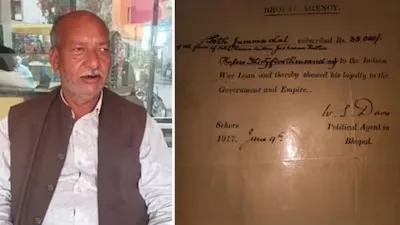Data by the state-level bankers committee says NRI deposits in banks across Kerala have reached Rs 2,29,636 crore as on March 31, as against Rs 2,08,698 crore on the corresponding day in 2020. A similar pattern of growth — 10 per cent — was reported in the fiscal 2019-20.
Deposits by NRIs in Kerala banks have grown by 10 per cent in the last fiscal, notwithstanding the return of lakhs of expatriates due the crisis in the wake of the pandemic. Domestic deposits have also registered a growth of 12 per cent in the same period, an Indian Express report says
Data by the state-level bankers committee says NRI deposits in banks across Kerala have reached Rs 2,29,636 crore as on March 31, as against Rs 2,08,698 crore on the corresponding day in 2020. A similar pattern of growth — 10 per cent — was reported in the fiscal 2019-20.
Meanwhile, domestic deposits have reached Rs 3,76,278 crore as on March 31, as against Rs 3,35,674 crore on the corresponding day in 2020.
A couple of factors have been attributed for the rise in NRI deposits in Kerala despite the pandemic-triggered crisis.
Senior banker S Adikesavan said, “NRIs who have returned in the wake of pandemic might have transferred their deposits held in accounts abroad to a bank in the country or the state. Back home, transactions such as real estate have been virtually nil due to the lockdown, which ensured that these NRI deposits remained parked in the banks.”
Adikesavan said that NRIs returning to Kerala would have had a certain degree of uncertainty about flying back abroad. That would prompt the NRIs to transfer their deposits from abroad to their homeland. Also, the depreciation of the rupee has contributed to the increased flow of NRI deposits.
According to Adikesavan, the salaried class or fixed income groups could save more money as spending or consumption has come down considerably due to the lockdown restrictions.
NRI deposits are foreign currency deposits in an Indian bank by non-resident Indians. NRI deposits are different from remittances, which are funds in foreign currency sent by NRIs to their families back home and are not repatriated like NRI deposits.
Over the last one year, 10 lakh people who returned from abroad — most of them from the Middle East — have given loss of job as the reason for their return to the country.
It was initially feared that the return of expatriates would impact the state’s economy as the money expatriates sent is reckoned as the lifeline of Kerala’s economy.
************************************************************************
Readers
These are extraordinary times. All of us have to rely on high-impact, trustworthy journalism. And this is especially true of the Indian Diaspora. Members of the Indian community overseas cannot be fed with inaccurate news.
Pravasi Samwad is a venture that has no shareholders. It is the result of an impassioned initiative of a handful of Indian journalists spread around the world. We have taken the small step forward with the pledge to provide news with accuracy, free from political and commercial influence. Our aim is to keep you, our readers, informed about developments at ‘home’ and across the world that affect you.
Please help us to keep our journalism independent and free.
In these difficult times, to run a news website requires finances. While every contribution, big or small, will makes a difference, we request our readers to put us in touch with advertisers worldwide. It will be a great help.
For more information: pravasisamwad00@gmail.com








